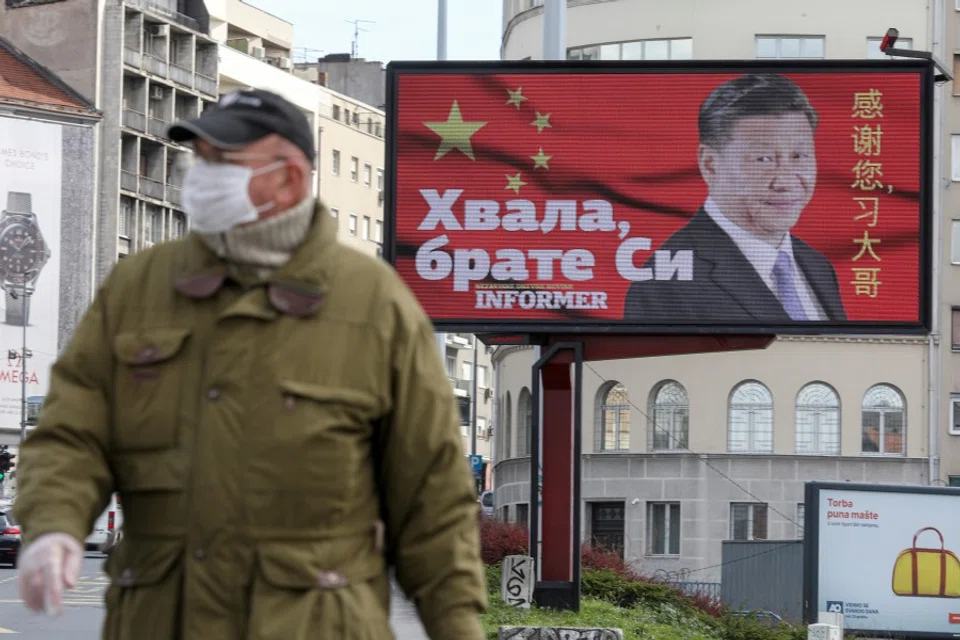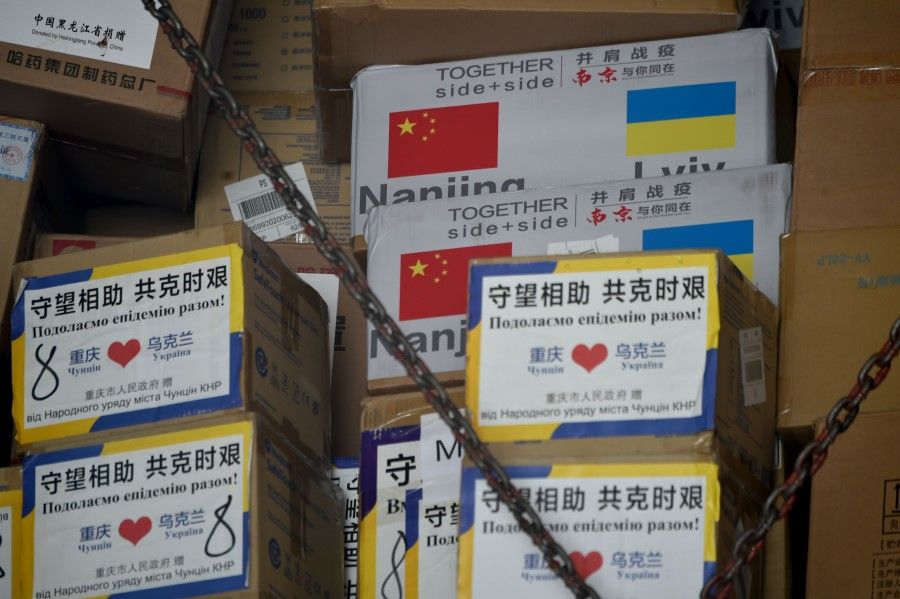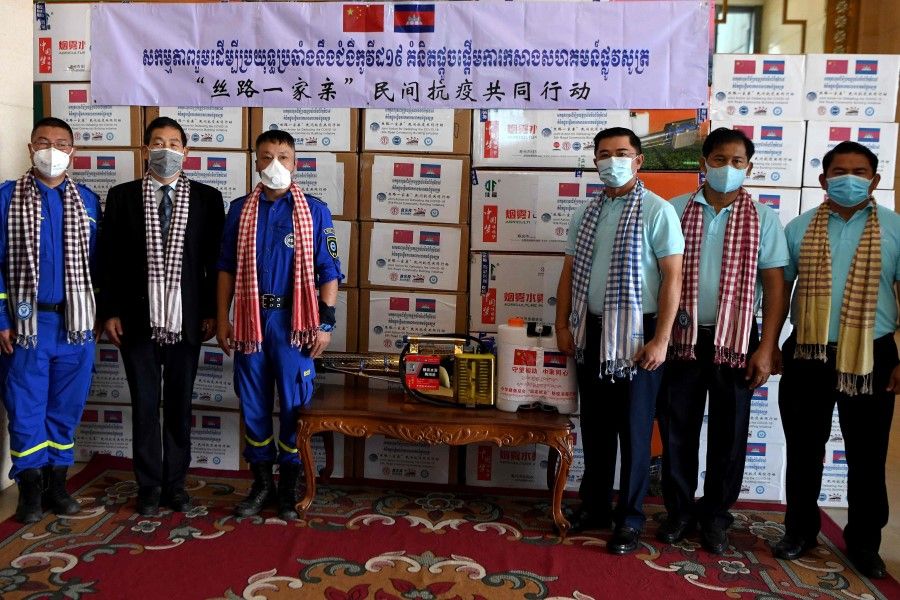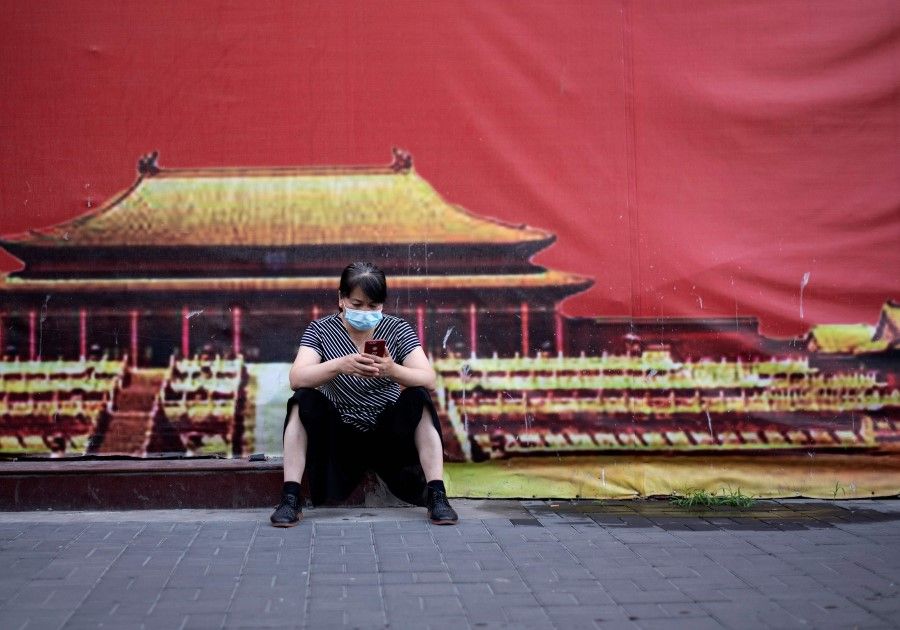Why has China's global publicity efforts backfired?

There is an idea presently floating around that when the Covid-19 pandemic and the pandemic-induced economic recession are over, China will be more important to the future of the world than it has ever been, and the country's influence in international agencies and geopolitics will be greatly boosted. Assuming that such an optimistic outlook does indeed come to pass, how will China project itself to the world then?
Let us remember this: the system of nation-states was established by the West. China participated in international affairs fully only after it opened up and initiated its economic reform. For the last four decades, the nation has been groping its way around, trying to determine how it should conduct its relations with the unfamiliar capitalist world. Objectively speaking, it is lacking in necessary experience. China's international publicity work, in particular, has yet to catch up with the rapid transformation of the country's international identity. The ongoing pandemic has exposed the immaturity of the way China projects itself outwardly.
Notably, at the height of the coronavirus pandemic in Europe, China loudly trumpeted its aid to the continent and even touted the superiority of the Chinese political system and apparatus. Such moves caused countries to feel extremely uncomfortable.
The erroneous belief that more is more
Since the early months of 2020, and once the coronavirus outbreak within its borders was initially put under control, China embarked on an extensive foreign aid programme. Such aid included the provision of medical supplies to over 150 countries, and the dispatch of medical teams to various nations. China should have received more plaudits for these efforts, but it did not get them because of its poorly-conceived and executed publicity plans. Notably, at the height of the coronavirus pandemic in Europe, China loudly trumpeted its aid to the continent and even touted the superiority of the Chinese political system and apparatus. Such moves caused countries to feel extremely uncomfortable.

Josep Borrell, the European Union's High Representative for Foreign Affairs and Security Policy, wrote the following in May: "In the beginning [of the coronavirus outbreak], when Chinese hospitals were overwhelmed, the EU offered extensive support, without much publicity. Later on, when Europe became the centre of the pandemic, China sent large supplies of medical equipment - and it made sure the world knew about it." As he saw it, China was seeking political gain from such actions at a time when all countries should be showing "mutual support and international solidarity".
China can hardly be derided for pursuing its own interests. Nevertheless, such pursuits have to proceed in an appropriate manner and with appropriate reasons.
Showing consideration for others
Thus far, in the way China handles things, there is obviously no consideration for how cultural differences influence behaviour, ways of thinking and value judgements. In the Western value system, there is nothing glorious about being incapable and reliant on others to help solve one's problems. In societies that enshrine individualism and take pride in personal success, a show of sympathy and pity for the weak is not seen as a virtuous act of kindness as it would be in China.
To have the old mindset of donation publicity brought into the international scene speaks of a spiritually unhealthy, atavistic gene at play. China ought to demonstrate the higher level of civil refinement that it has, in reality, already developed.
Therefore, consideration must be given in international publicity not only to what is being conveyed, but also how it is being conveyed. Only by putting ourselves in the shoes of others and taking into account the perceptions of our audience will publicity work be effective. In any case, do the Chinese people not also have principles and a sense of dignity themselves? Do we not in the Chinese culture also embrace the spirit of the refusal to eat any food that is demeaningly offered (even to the point of starving to death), not to mention abiding by the "do not bear in mind the benefits you give or forget the good you have received" as a moral principle in providing help to others? In the publicity relating to international assistance, consideration must be given to the feelings of those on the receiving end of the aid.

Just a few decades ago, by way of "donation publicity", it was not uncommon to see an exaggerated version of the donor's cheque - enlarged even to the size of a bed - during charity donation ceremonies. This was all for the sake of good television. To the Chinese people these days, however, this is seen not as true charity but as contemptible self-aggrandisement. To have the old mindset of donation publicity brought into the international scene speaks of a spiritually unhealthy, atavistic gene at play. China ought to demonstrate the higher level of civil refinement that it has, in reality, already developed.
In response to the Covid-19 pandemic, China has declared that it will provide US$2 billion in international aid over the next two years. In time to come, China's soft power in the international agencies will surely increase in tandem with its constantly increasing financial contributions. A clear line should be drawn between China's international aid and the crass image of a high-profile almsgiver.
Praising oneself using officialese is not easily acceptable to non-domestic audiences. That America's leaders boast about their pandemic responses and come across as laughable is a case in point.
China's publicity efforts need to undergo overhaul
Chinese-style bureaucracies and political rhetoric should also be toned down in China's international publicity work henceforth. China should speak to the world in a language it is willing to listen to and can understand.
Conventionally, politics is about authority and government. Since there is no authority above and beyond the state, politics should not be involved in international relations in many circumstances. For instance, when you deal with a public health incident and step in to help in a disaster, science and moral obligations should be at the forefront, not politics. This is because real relations between countries hinge on broad-spectrum connections, as well as the affective and cultural exchanges between people and enterprises. The pandemic period is not the best time to extol the virtues of one's social system. Rather let us believe in what time can do. The comparison of political systems will necessarily unfold, but let history be the judge after the international community has finally triumphed over the pandemic.
It cannot be emphasised enough that the tactics used on the domestic public cannot be applied non-selectively to the international arena.
Praising oneself using officialese is not easily acceptable to non-domestic audiences. That America's leaders boast about their pandemic responses and come across as laughable is a case in point. Relations between nations are characterised by special ethics and principles. For the self-serving propaganda of America's anti-China politicians (as well as the think tanks and media that manipulate the narratives about China) to fail, China should come up with more brilliant methods and wordings of its own.
It cannot be emphasised enough that the tactics used on the domestic public cannot be applied non-selectively to the international arena. Not long ago, the Chinese Embassy in Brazil actually wrote to the Brazilian National Congress, asking it to restrain its House members, so that they would not do anything within Tsai Ing-wen's second presidential term that contradicts Brazil's recognition of the One-China principle. Instead of achieving its intended effect, the letter was later posted on Twitter by one of the Congress deputies, and the Twitter hashtag of #VivaTaiwan was started by some Brazilian netizens as a result.
Diplomats are playing an increasingly prominent role in China's international publicity. However, as demonstrated by the example above, some envoys posted abroad are still stuck within the Chinese political framework when thinking about international issues. To countries that have accepted Western values, the ideal person is an autonomous individual, and Congress members have freedom of speech. It is not the job of a national congress to dictate what its members say or do. When we apply our domestic experience to the broader international field, we get outcomes contrary to what we desire.
Internationally, as described by some people, Western strategists believe that in some secret, cadre-packed chamber of the Communist Party, the Chinese leaders are plotting how they are going to take over the whole world.

On-point articulation of discourse requires a clear judgement on the international environment. The global system is currently in jeopardy. Internationally, as described by some people, Western strategists believe that in some secret, cadre-packed chamber of the Communist Party, the Chinese leaders are plotting how they are going to take over the whole world. An emphasis on the "Chinese threat" is becoming the basis for the formulation of foreign policy in some countries. When the West was being hit hard by the Covid-19 pandemic, China rose to become the main provider of medical supplies, and then cast a strong spotlight itself on the aid it was providing to Europe. Notably, the images of Serbian president Vučić kissing the Chinese flag were replayed on television over and over again. Scenes of this sort have undoubtedly added fuel to the fire in painting China as a sinister threat.
There has to be an earnest examination of the whole gamut - everything from irrelevant, outmoded language, to existing, subconsciously deep-seated mindsets that are ill-fitted for international publicity.
In terms of showcasing its global influence, China is obviously a newbie. Mistakes in the pandemic-related publicity work can be a good basis for reflection on China's part. Mao Zedong once said: "Mistakes and frustrations educate us, constantly making us smarter." Evidently, experience is acquired through practice.
As China continues to move towards a wider market mechanism, it will explore more deeply the ways in which the state may wield control over the economy. The closer this Asian colossus gets to the centre of the international stage, the more it will become the focus of world news. For China's international publicity work, there will be more and more new challenges, some of which will even lie beyond the existing range of its political, legal and cultural experience. There has to be an earnest examination of the whole gamut - everything from irrelevant, outmoded language, to existing, subconsciously deep-seated mindsets that are ill-fitted for international publicity. Only when this is done will there be a substantial elevation in China's competence in speaking to the world.
